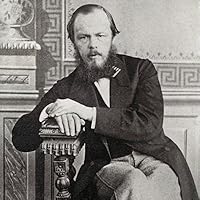

“The system can be paralyzed in yet another way. Every feedback system needs a margin of “lag” or error. If we try to make a thermostat absolutely accurate–that is, if we bring the upper and lower limits of temperature very close together in an attempt to hold the temperature at a constant 70 degrees–the whole system will break down. For to the extent that the upper and lower limits coincide, the signals for switching off and switching on will coincide! If 70 degrees is both the lower and upper limit the “go” sign will also be the “stop” sign; “yes” will imply “no” and “no” will imply “yes.” Whereupon the mechanism will start “trembling,” going on and off, on and off, until it shakes itself to pieces. The system is too sensitive and shows symptoms which are startlingly like human anxiety. For when a human being is so self-conscious, so self-controlled that he cannot let go of himself, he dithers or wobbles between opposites. This is precisely what is meant in Zen by going round and round on “the wheel of birth-and-death,” for the Buddhist samsara is the prototype of all vicious circles. We saw that when the furnace responds too closely to the thermostat, it cannot go ahead without also trying to stop, or stop without also trying to go ahead. This is just what happens to the human being, to the mind, when the desire for certainty and security prompts identification between the mind and its own image of itself. It cannot let go of itself. It feels that it should not do what it is doing, and that it should do what it is not doing. It feels that it should not be what it is, and be what it isn’t. Furthermore, the effort to remain always “good” or “happy” is like trying to hold the thermostat to a constant 70 degrees by making the lower limit the same as the upper.”
― The Way of Zen
― The Way of Zen

“And that is not all: even if man really were nothing but a piano-key, even if this were proved to him by natural science and mathematics, even then he would not become reasonable, but would purposely do something perverse out of simple ingratitude, simply to gain his point. And if he does not find means he will contrive destruction and chaos, will contrive sufferings of all sorts, only to gain his point! He will launch a curse upon the world, and as only man can curse (it is his privilege, the primary distinction between him and other animals), may be by his curse alone he will attain his object--that is, convince himself that he is a man and not a piano-key! If you say that all this, too, can be calculated and tabulated--chaos and darkness and curses, so that the mere possibility of calculating it all beforehand would stop it all, and reason would reassert itself, then man would purposely go mad in order to be rid of reason and gain his point! I believe in it, I answer for it, for the whole work of man really seems to consist in nothing but proving to himself every minute that he is a man and not a piano-key! It may be at the cost of his skin, it may be by cannibalism! And this being so, can one help being tempted to rejoice that it has not yet come off, and that desire still depends on something we don't know?”
― Notes From The Underground
― Notes From The Underground

“To the Taoist mentality, the aimless, empty life does not suggest anything depressing. On the contrary, it suggests the freedom of clouds and mountain streams, wandering nowhere, of flowers in impenetrable canyons, beautiful for no one to see, and of the ocean surf forever washing the sand, to no end.”
― The Way of Zen
― The Way of Zen

“But what can be done, the one who loves must share the fate of the one he loves.”
― The Master and Margarita
― The Master and Margarita

“The study of theology, as it stands in Christian churches, is the study of nothing; it is founded on nothing; it rests on no principles; it proceeds by no authorities; it has no data; it can demonstrate nothing; and it admits of no conclusion. Not anything can be studied as a science, without our being in possession of the principles upon which it is founded; and as this is the case with Christian theology, it is therefore the study of nothing.”
― The Age of Reason
― The Age of Reason
Ritchie’s 2024 Year in Books
Take a look at Ritchie’s Year in Books, including some fun facts about their reading.
Favorite Genres
Polls voted on by Ritchie
Lists liked by Ritchie




